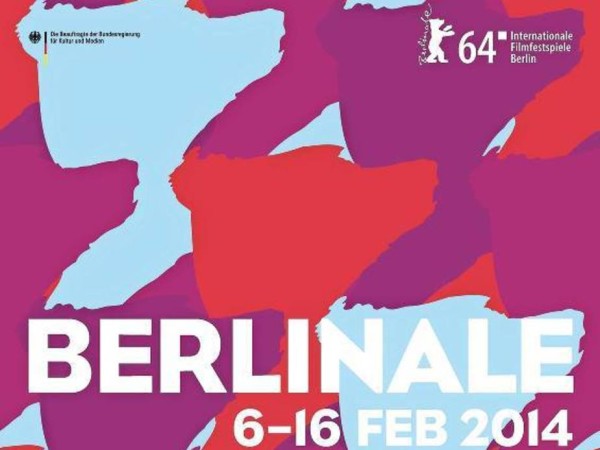
For seven days this February, I found myself in Berlin’s Potsdamer Platz, the architectural glass and steel heart of the 64th annual Berlinale. It’s a surprisingly subdued centre for a city as bohemian as Berlin and for a festival so concerned with giving a platform to the most provocative, inventive, and marginalised voices in cinema. Nonetheless, it was the location for the festival’s gala venue, Berlinale Palast.
The Palast screened all the Competition films of the festival, including the Chinese Silver Bear winner, Black Coal, Thin Ice. Many felt the Competition was rather lukewarm, though one of my personal favourites was in the running, shown at the charmingly art deco Friedrichstadt Palast. Stratos (dir. Yannis Economides) is a Greek neo-noir about a hitman turned vigilante. With a wide-angle lens capturing the craggy Mediterranean backdrop and oblique references to the nation’s economic woes, Economides seems to indict a wide-ranging portion of Greek society. His lead actor, Vangelis Mourikis, gives a performance of solemnity and existential suffering in the vein of Jean-Pierre Melville’s contract killers.
Many of the quality selections of the festival seem to have been placed in the Panorama and Forum categories, where several highlights from this year were to be found. Michel Gondry’s ‘animated conversation’ with Noam Chomsky (Is The Man Who is Tall Happy?) proved an unexpected triumph, taking a novel approach to understanding the life and work of the esteemed linguist and scholar. John Michael McDonagh (of The Guard fame) premiered his sophomore feature, Calvary, in the Panorama section. It features Brendan Gleeson as an Irish country priest with the pathos and principles of a man out of time, alienated and mocked at every turn. There’s a self-awareness that sometimes proves uneven, but the film’s weaknesses are outweighed by one of the simplest and profoundly saddest performances of Gleeson’s career. Calvary crackles with verbose, witty dialogue and black tragicomedy. In addition, the Retrospective category allowed for an exciting selection of classic films, from Von Sternberg’s Shanghai Express to Marcel Carné’s Le Quai des Brumes.This strand, titled ‘Aesthetics of Shadow’, offered a primer on expressionistic lighting techniques in European, American, and Japanese film from 1915-1950.
With the good, of course, comes the bad, whether it be the over-saturated sub-Tarantino Chinese film No Man’s Land (dir. Ning Hao) or the thoroughly middlebrow, middle-of-the-road French comedy Dans Le Cour, starring Catherine Deneuve. A highly subjective (and minority) note of mine involves a personal festival poison: the three-hour long vacuum that was Lars Von Trier’s uncut Nymphomaniac Vol.1. It is a petty, vicious-minded little drama, hanging together with gallows humour and cod philosophy, but only just. It’s a film that pirouettes stylishly through its gratuitousness with no genuinely expressed thought or emotion; Von Trier’s cinematic shorthand of ‘repulsion for repulsion’s sake’ soon becomes a tiresome affair.
At Naherholung Sternchen club, a no-frills warehouse space in Mitte, another small, shorts-based festival ran alongside Berlinale. The 10th International Berlin Director’s Lounge proved a low-key counterpoint to the sparkling commercialism of Potsdamer Platz.
Split into separate viewing rooms for narrative shorts and more avant-garde installations, the experience was relaxed and eclectic. A sombre half-hour Polish short, Mother (Matke, dir. Lukasz Ostalski) concerns a heinous act committed by a politician’s son, and the decisions that are made in order to forestall the consequences. A muted, blue-gray chilliness pervades the film and Ostalski intelligently manages a complex character arch within the limitations of the running time. Another highlight was Antoni Pinent’s G/R/E/A/S/E, a humorous, experimental deconstruction of a certain beloved musical, exposing the latent homoeroticism therein. With such a vast variety of films showing at Berlinale, at venues dotted around the city, it was difficult indeed to know where to begin. With constraints on time, I was unable to see many of the most talked-about films of the festival (Boyhood, Xi You) but perhaps this allowed for the pleasure of wandering into something more unusual. Witnessing the idiosyncratic underside of Berlinale turned out to be just as rewarding.















{ 2 comments… read them below or add one }
This was very nicely written and thought out. Thank you. The next time I go to the Berlinale I want to go with you! I would like to make a recommendation for you, the next time you are at the Berlinale go to the Directors Lounge. It is an alternative within the Berlinale to get away from the madness of the festival and experience alternative culture with music, film and art exhibitions in one location. Nice people too! Best, Robert
Great post. I was checking continuously this weblog and I am inspired!
Extremely helpful info particularly the last section :
) I take care of such information a lot. I was looking for this certain information for a long time.
Thanks and best of luck.